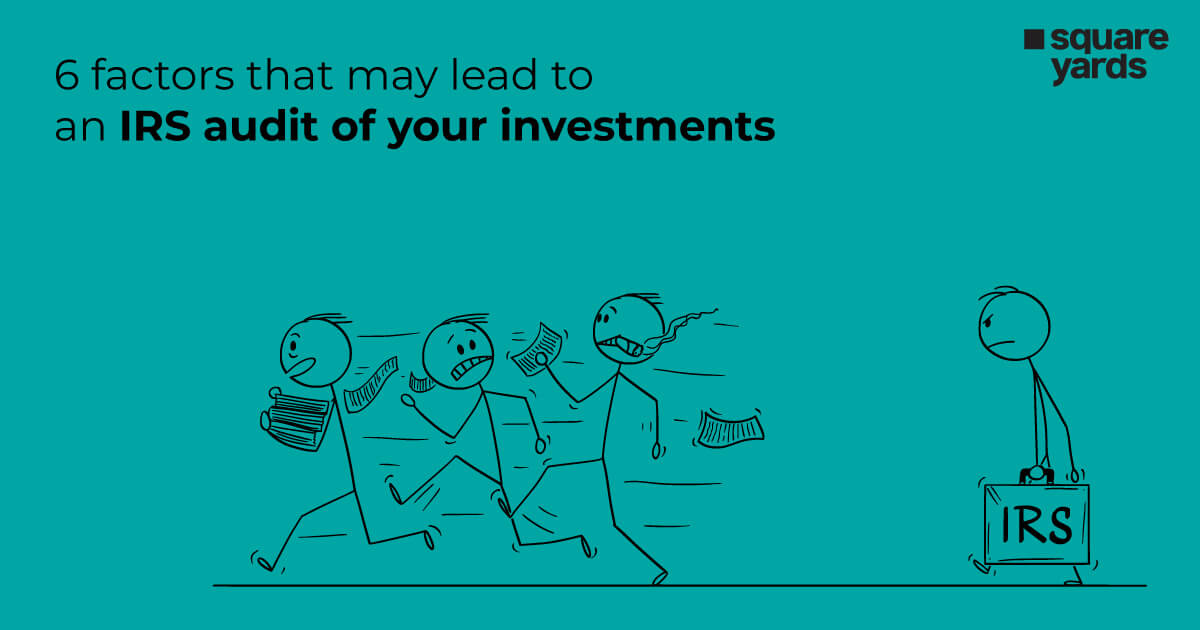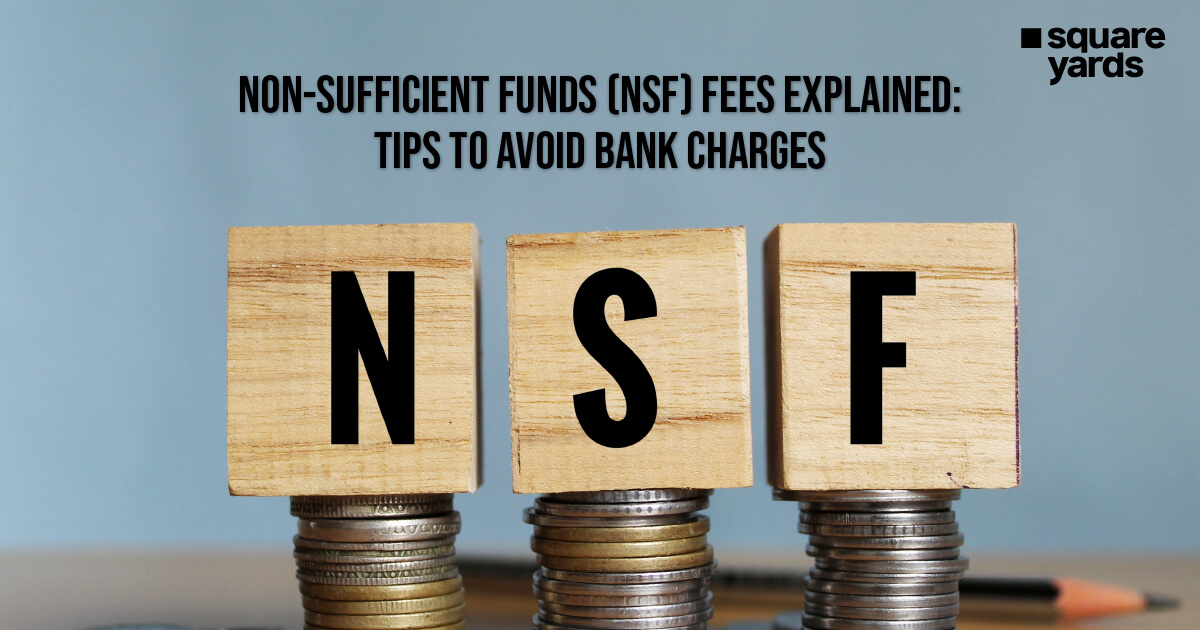Many people fear being IRS audit triggers, which can happen for various reasons, such as unverified deductions, unreported income, significant business losses, or failure to disclose cryptocurrency holdings. In addition to these common issues, individuals with investments should consider investment-related factors that could trigger an audit. Fortunately, the likelihood of being audited is relatively low for most taxpayers. According to CNBC, only 0.4 per cent of all individual tax returns in fiscal 2022 were selected for an audit.
Overview
Furthermore, most of these audits were conducted through mail correspondence, so the dramatic face-to-face encounters with intimidating tax agents portrayed in movies are more fictional than real. Below are a few typical explanations for why individual investors may initiate an audit.
What can cause a tax audit?
The IRS typically focuses on taxpayers with large deductions compared to their income, business filers with suspicious or excessive write-offs, those claiming the earned income tax credit, or anything unusual. While investing is not a common IRS audit triggers, it can still happen. It is important to accurately report all income to avoid issues with the IRS since the IRS automates this process and flags any discrepancies. The IRS tends to match the information returns given to taxpayers, such as Form 1099s, with what is reported on their returns. Audits are more likely for higher-income individuals as they have the potential for larger tax adjustments.
However, low-income filers should not attempt to manipulate their returns as the IRS can quickly detect any unusual activity due to electronic management. The IRS conducts discriminant function tests that compare deductions to income averages, and if something appears out of range, taxpayers will be questioned. Investors should be cautious of discrepancies in certain areas that may draw the attention of the IRS.
Top IRS Audit Triggers For Investments
-
Real estate deductions
Suppose you have invested in the real estate sector and personally manage the properties. In that case, it is important to properly document and deduct legitimate expenses associated with the rental property, such as repairs, depreciation, and advertising costs. However, it is crucial to exercise caution and avoid excessive deductions or claiming expenses that are not eligible for deduction. The significant increase in low-rate mortgages issued between 2020 and 2022 has drawn attention to the possibility of scrutiny if unusually large mortgage deductions appear questionable. Megan Gorman, the managing partner at Chequers Financial Management in San Francisco, emphasises the potential red flag that arises when a substantial loss is claimed on farmland.
The Internal Revenue Service (IRS) provides landlords with certain allowances for claiming deductions; however, it is crucial to acknowledge that these allowances are not without limitations. Real estate investors must be prepared to provide evidence and substantiate their deductions if the IRS conducts an audit.
-
Missing dividends and interest
If you forget to include the dividends and interest from your banks and brokerages on your tax return, it could raise suspicion from the IRS, especially if the amount is significant. However, even if you make a mistake, you may not need to worry too much. According to Armstrong, it is common to receive a notice from the IRS pointing out that some income was left off a return. This is often due to innocent oversights, such as forgetting to include a 1099 form for bank interest or stock dividends. Fortunately, one can easily correct these mistakes.
The IRS may simply adjust your return and deduct the additional income that was missed. If the tax owed exceeds your refund, you will be required to pay the remaining amount. However, if a much larger 1099 form is missing, the IRS may not be as forgiving. Eric Bronnenkant, the head of tax at Betterment, warns that unreported income of this magnitude could potentially trigger a more thorough audit.
-
Missing capital gains
If an individual sells a stock or another type of security and earns a profit, they will have a capital gain and will be required to pay taxes on it. The tax rate for this gain depends on the length of time the security was held and the individual’s total taxable income. Typically, taxpayers report capital gains on Schedule D of their tax return, which is the designated form for reporting gains or losses on securities. Failing to report a capital gain may raise suspicion with the IRS. While the IRS may correct a small loss and adjust the tax liability accordingly, a significant unreported capital gain could trigger further investigation.
Although brokerage firms provide tax forms that document gains and losses, it is the individual’s responsibility to accurately report this information to the IRS. It is easy to overlook reporting gains for accounts that are not regularly monitored. Lastly, it is important not to assume that a capital gain can be omitted from reporting simply because the broker’s year-end tax report was delivered late. If an individual files their taxes early and fails to report the gain, they will need to file an amended return and provide an explanation to the IRS.
-
Failure to report cryptocurrency
According to Brian R. Harris, a tax attorney at Fogarty Mueller Harris, PLLC in Tampa, the enforcement of cryptocurrency is currently a significant focus. This means that if you engage in trading, holding, or using any form of cryptocurrency, you could be subject to an audit or compliance check. The latest tax returns now require individuals to disclose whether they have conducted transactions involving digital assets, with this question prominently placed at the top of Form 1040. Failing to report ownership or trading of digital currency or NFTs could lead to legal consequences.
Additionally, a tax liability on capital gains is possible, even if the digital currency was used for purchases rather than trading. It is crucial to remain vigilant as some brokers or exchanges may not diligently provide 1099 forms to report gains and losses to the IRS. If you spend cryptocurrency, you may need to maintain your records and calculate your tax liability.
-
Misfiled employer stock options
The taxation issues related to employer stock options can be quite complex. In many cases, employees may not report any gains from these options and assume that they don’t need to report them. However, it is common for taxpayers to neglect reporting the sale, which is a mistake. Here’s what typically occurs: employees receive stock options as a benefit. When they decide to exercise these options, they purchase the stock at the agreed-upon price. Often, employees immediately sell the stock without reporting the exercise price of the options, which is the correct cost basis for calculating the taxable gain.
According to Bronnenkant, even though there may be minimal or no gain or loss, it is still necessary to report the sale on a tax return. Failing to do so can lead to the IRS assuming that all the sale proceeds are short-term gains, even if they may not be taxable at all. This issue can be resolved by reporting the correct cost basis, but initially, the IRS might consider the stock’s sale proceeds as fully taxable, potentially at a higher short-term rate. Consequently, the IRS may believe that you owe thousands or even tens of thousands more in taxes and question why you haven’t paid them.
-
Filing late
The IRS expects to receive payment promptly and on schedule. This can pose challenges for investors, particularly when dealing with complex investments or receiving year-end statements late in the tax season. It is not uncommon for certain companies to submit tax information as late as April or even after the usual April 15 deadline. Despite the potential complexity of an investor’s tax returns, it is still important to file them promptly to avoid drawing attention from the IRS.
What can investors do if contacted by the IRS?
If the IRS contacts you, it is important to stay calm and composed. It is crucial to remember that being audited does not necessarily mean that your tax return is incorrect, as Gorman stated. Besides accurately filing your return and reporting all income, there are other steps investors can take to reduce the chances of being audited. Paying taxes on time, filing your return promptly, and promptly responding to any IRS notices are simple actions that can help avoid unwanted attention from the tax authorities, according to Paul T. Joseph, the founder of Joseph & Joseph Tax and Payroll.
Madison points out that the IRS tends to focus on items that may appear contradictory at first glance. However, the mere presence of contradictions should not deter individuals from claiming legitimate deductions. Madison suggests that taxpayers with unique circumstances may consider including a letter of explanation with their return. While this does not guarantee protection against an audit, it initiates the documentation process, which may prevent an audit from occurring in the first place. Bronnenkant recommends that individuals who invest in real estate should keep a record of all rental expenses and deductions. It is also important to remember that just because a deduction may seem unusual, it should still be claimed if it is substantial.
Gorman emphasises the importance of being able to substantiate the figures provided to the IRS, as substantiation is crucial in successfully navigating an IRS audit triggers. This can be more challenging for real estate investments compared to publicly traded stocks, as losses for stocks are typically included on a broker’s tax statement, whereas real estate expenses may require retaining receipts from various stores or independent contractors.
Bottom line
The IRS may choose to further investigate any deduction or additional income source that arises. Therefore, investors should not only be mindful of typical areas of concern, such as common deductions and unreported income, but also diligently report any earnings derived from stocks, bonds, real estate, and other investment vehicles. It is essential for taxpayers, including investors, to take proactive measures to avoid raising suspicion with the IRS.
You May Also Read :
|
Guide To BC Foreign Buyers Tax |
|
|
How To Manage Property Tax Bill in Canada |
|
|
All About Land Transfer Tax Ontario |
|
|
Know The Toronto Property Tax |
Frequently Asked Questions (FAQs)
What triggers an IRS audit?
Common triggers include transactions involving digital assets, withdrawals from retirement accounts related to Covid-19, and failure to report all income. It is worth mentioning that the majority of tax returns are received and processed by the IRS without any additional scrutiny.
What is the most common tax audit?
The most frequently encountered type of tax audit involves a correspondence examination or an inquiry from an auditor.
How do you avoid an IRS audit?
Although it is not possible to completely avoid an IRS audit, there are measures you can adopt to reduce the likelihood. These include ensuring that you accurately report all your earnings, maintaining records of the forms you receive, and providing evidence for digital asset transactions.
What makes you a high audit risk?
Some factors that could raise your chances of being audited include experiencing a significant fluctuation in your income or deductions compared to the previous year, incorrectly reporting your taxable income, making unusually large donations to charities, and having suspiciously even or rounded numbers, with each number ending in 0 or 5.
Who gets audited by the IRS the most?
People who earn more money and businesses that primarily use cash may face increased scrutiny.











